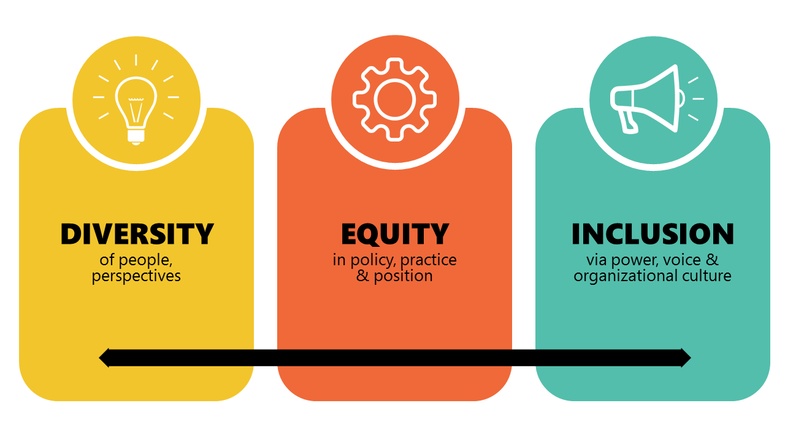10 HR Trends for 2025! Human resources is undoubtedly one of the most rapidly changing areas in the business world. Factors such as digital transformation, employee expectations, and global competition especially enable HR processes to be constantly reshaped. At this point, HR trends are vital for businesses to adapt to the future and achieve sustainable success. Innovations such as AI-powered automation, improved employee experience, and flexible working models will be among the key areas that HR will need to focus on in 2025. These trends will not only increase work efficiency but also strengthen employee engagement and satisfaction.
In this article, we will discuss in detail the most important HR trends that are expected to come to the forefront in 2025. Topics such as artificial intelligence, skills development, leadership strategies, and salary transparency offer great opportunities for businesses to gain a competitive advantage. If you want to learn more about HR trends and how you can keep up with these changes, the rest of the article will be a guide for you!

Contents
- 1 10 HR Trends for 2025
- 1.1 1) Expansion of Artificial Intelligence and Automation
- 1.2 2) Upskilling & Reskilling
- 1.3 3) Employee Experience and Wellbeing Management
- 1.4 4) Strategic Leadership Development
- 1.5 5) Flexible and Hybrid Working Models
- 1.6 6) Digital Transformation and HR Technologies
- 1.7 7) Strengthening Culture and Values
- 1.8 8) Diversity, Equity, and Inclusion (DEI)
- 1.9 9) Salary Transparency and Wage Management
- 1.10 10) Data-Driven Decision Making
- 1.11 Videos Related to HR Trends
10 HR Trends for 2025
1) Expansion of Artificial Intelligence and Automation
In 2025, artificial intelligence (AI) and automation will revolutionize HR processes. In particular, repetitive tasks such as recruitment, candidate screening, and performance evaluation will be made more efficient with AI-powered software. Artificial intelligence will minimize human errors in identifying the most suitable candidates by analyzing candidates’ resumes while providing data-driven reports to managers. However, with these developments, data privacy and ethical issues will also be on HR’s agenda. Transparency and fairness in the use of AI will be critical to ensure employee trust. HR professionals will focus on striking a human-centered balance by using technology within ethical boundaries.
Related: AI in Manufacturing: Incredible Benefits and Examples of AI
2) Upskilling & Reskilling
In 2025, the competencies of candidates will be at the forefront of recruitment processes, rather than diplomas. Companies will invest in various training programs to improve employees’ existing skills and gain new skills. Competency development strategies will gain importance, especially in areas such as artificial intelligence, digital transformation, and sustainability. Promoting a culture of continuous training and development will enable employees to adapt quickly to changes in the business world. This approach will increase the competitiveness of not only employees but also organizations and create a more flexible workforce.

3) Employee Experience and Wellbeing Management
The psychological and physical well-being of employees is likely to be among the most important HR trends of 2025. Employee experience is no longer limited to the efficiency of business processes; comprehensive approaches are being developed to ensure individuals’ work-life balance and prevent burnout syndrome. Companies aim to increase employee satisfaction with innovations such as mindfulness practices, flexible working hours, and employee support programs. With customized solutions, welfare policies will be developed to suit the individual needs of each employee. Happy and healthy employees will create a more productive work environment and increase the success rate of companies.
4) Strategic Leadership Development
In 2025, the concept of leadership will require a strategic vision beyond mere management. In other words, the ability of leaders to manage change and make fast and accurate decisions in times of crisis will be at the forefront of 2025 HR trends. Companies will allocate more resources to leadership development programs, aiming to improve both the technical and emotional intelligence skills of their managers. Mentor-mentee relationships will be encouraged, enabling leaders to guide young talents. In addition, inclusive leadership models will be adopted and strategies will be developed to increase employee motivation and engagement. This approach will make it easier for companies to adapt faster to changing market conditions.

5) Flexible and Hybrid Working Models
The hybrid working model, which has become popular, especially after the pandemic, will continue to be effective in 2025. Employees demand a balanced working order between the office and home environment. Companies will aim to increase employee loyalty by developing policies in line with this new model. Innovations such as flexible working hours, office space redesign, and the effective use of digital communication tools will be key elements of the hybrid model. In addition, research showing that this arrangement increases productivity will allow companies to make flexible working practices permanent.
Related: What is Human Resources (HR)? Types, Responsibilities, and Strategies
6) Digital Transformation and HR Technologies
Digitalization means more data usage and automation in HR processes. By 2025, technologies such as cloud-based software, workforce analytics, and data integration will become widespread in human resources management. HR professionals will utilize these technologies to increase employee productivity and make strategic decisions. In particular, human resources information systems (HRIS) and artificial intelligence-supported tools will enable more efficient management of processes. The proper use of technology will create new opportunities in workforce management and reduce operational costs.

7) Strengthening Culture and Values
In 2025, corporate culture and values will become critical to the success of organizations. Companies will organize cultural alignment programs and team events to increase employees’ sense of belonging at work. In addition, leaders will be encouraged to integrate company values into daily operations. Employees’ embrace of the company mission will improve business performance and positively impact customer satisfaction. Therefore, organizations will develop strategies that support cultural diversity and inclusion.
8) Diversity, Equity, and Inclusion (DEI)
In our HR Trends for 2025 article, diversity and inclusion policies are among the factors that increase employee satisfaction and engagement. In 2025, companies will implement more comprehensive strategies to promote diversity in the workforce and provide equal opportunities. Representation of women and minority groups, especially in leadership positions, will be a priority. Effective implementation of DEI policies will strengthen both the internal and external reputations of organizations.

9) Salary Transparency and Wage Management
Transparency in salary policies is an important way to increase employee trust and satisfaction. In 2025, companies will focus on meeting employee expectations by offering fair compensation policies. More fair and transparent remuneration models will be created by using data analytics to eliminate wage inequalities. This approach will make it easier for companies to attract and retain talented employees.
10) Data-Driven Decision Making
Data analysis will become a critical tool for making strategic decisions in human resources processes. In 2025, HR departments will adopt data-driven approaches in all areas from recruitment processes to employee satisfaction. The use of data analytics will become widespread, especially in areas such as workforce planning, performance evaluations, and talent management. Data-based decisions will both increase efficiency and reduce costs.
Videos Related to HR Trends
We would like to recommend a video on HR Trends for you to watch. You can learn about hr trends by watching this video. You can click HERE for more videos.
